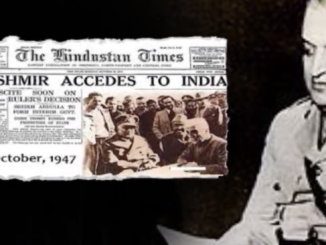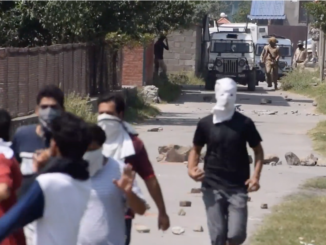Powerful nations often rely on narratives more than weapons to shape their global image. These narratives are built not merely with policies but with perceptions—projected through diplomacy, soft power, and cultural influence. India, once universally celebrated as the world’s largest democracy and a cradle of pluralism, has long enjoyed this advantage. From its booming tech industry and yoga diplomacy to vibrant Diasporas and democratic traditions, the country has successfully projected an image of harmony, resilience, and global goodwill. Yet behind the polished surface, the current trajectory of India’s statecraft tells a very different story—one marked not by openness, but by coercion, surveillance, and the steady erosion of dissent, both within and beyond its borders.
In the recent years, India has become sharper in its global interaction particularly, with the leadership of Prime Minister Narendra Modi. The style that can be characterized as the end of the soft power that aimed at the cooperation appears, more frequently than ever before, to be the strategic sort of manipulative one. The government has been mobilizing the Indian diaspora in harder extending ways, its home democracy getting tighter control, and its international politics coming more in line with and narrative management than multilateral relationships. This turnaround is not only evident within the domestic trends but with the growing involvement of Indian states in Western democracies the issue of legal and ethical concerns are coming to the light.
This is especially the case in how India is dealing with its diaspora across the world. Traditionally, one of the greatest soft power resources of India has been its diaspora that has played very significant roles in business, culture, and lobbying abroad. This association however has changed hands through the appointment of the current regime. The Overseas Friends of BJP (OFBJP) is one such organization which operates in several parts of the United States, United Kingdom, Canada and Australia, but not as community organizers but ideological emissaries. These factions have been noted propagating sectarian idea especially that which is anti-Muslim and anti-Pakistan citing cultural solidification. A 2022 report summarized by Carnegie India analyst Christophe Jaffrelot explained these organizations represent an ideological shift rather than a cultural one.
More worrying perhaps is the belligerent attitude against any opposition within their diaspora, particularly by the Sikh community and Kashmiris. Canadian Prime Minister Justin Trudeau alleged in 2023 that Indian intelligence planned the murder of a pro-Khalistan activist, Canadian citizen Hardeep Singh Nijjar. Soon afterward, another Sikh leader, in New York, was targetted by an Indian national, Nikhil Gupta, who was subsequently indicted by the U.S. authorities and reported to be on assignment by an Indian government official.
Sikh and Kashmiri activists claim to be digitally monitored, stalked and intimidated in the United Kingdom. These concerns have been expressed in the UK parliament by British lawmakers urging the Indian government to stop direct involvement of their diplomatic officials in protests and events happening in college campuses. The United Nations also played its part in the game, its Special Rapporteur in 2025 stated that various countries are investigating these types of transnational repression.
Such an external approach compliments an internal trend of democratic erosion that has proved hard to ignore. A country that prided itself on having a strong democracy is gradually losing all the democratic credentials. This erosion is also shown in international indices: Freedom House has recently downgraded India to a status of merely Partly Free, referring to restrictions imposed on the freedom of the press, regular internet outages, and the abuse of anti-terrorist laws. The V-Dem Institute, in its annual global democracy report, continues to categorize India as an “Electoral Autocracy” for the fifth consecutive year.
The judicial system has turned out to be favorite weapon used in gagging opponents. The detention holds students, journalists, lawyers and civil rights campaigners on strict laws like the Unlawful Activities (Prevention) Act (UAPA) and the Prevention of Money Laundering Act (PMLA). Even prominent figures such as Umar Khalid, a vocal student activist and Sanjiv Bhatt, former police turned whistle blower are languishing in prisons without fair trial. Most arrests are carried out under the National Security Act in conflict intensified states like Kashmir and Manipur without any specific charges. These measures have been raised by various human rights groups such as human rights watch and Amnesty International that give warnings of freezing effect on both the civil society and the minority communities.
Meanwhile, the inclusive approach of India with regard to diplomacy shows that the nation makes more use of narrative management instead of intellectual interaction. Indian diplomats, especially at the United Nations, have habitually cited the country as a victim to the global menace of terrorism whereas they stave off criticism about their own record on human rights. Recently, the incident of the occasion held by India at the UN headquarters in June 2025 called the Human Cost of Terrorism. As it threatened India with the image of a state that lived under a constant state of siege, the event deftly did not refer to the concept of state controlled violence in Kashmir or police excesses amidst law and order trouble in other areas like Punjab and Manipur.
There is also the bias of even financial diplomacy. In July 2025, Amnesty International and CIVICUS in their shadow report to the Financial Action Task Force (FATF) allegedly accused India of ignoring the suspect financial activities of Hindutva-linked corporate entities and severity upon Muslim charities. Such hypocrisies prompt that there was a trend of financial governance that was more ideologically oriented towards preservations rather than being fair.
It is not only in multilateral forums such behavior is not allowed. Indian embassies have been criticized with trying to shut criticism in the west. Parliamentarians such as Tanmanjeet Singh Dhesi of Britain and Debbie Abrahams criticized the Indian government about Kashmir and human rights and were subject to delays in visas and reprimands by the Indian High Commission. Elite universities such as Oxford, SOAS, Harvard and Stanford have recorded cases of Indian officials pressuring to cancel lectures and conferences that study Indian policies, especially national treatment of the Citizenship Amendment Act (CAA), Kashmir and farmer protests.
All these trends are indicative of a larger movement in India, vis-a-vis its international position. The diplomacy of the country that was once based on the Gandhian ideals and peaceful multilateralism is more and more akin to the doctrine of strategic deflection and coercive outreach. It is an example of a combination of democratic facade and authoritarian techniques of regulation. Such a mixed model is not something new on the global scene. Such countries as China, Turkey and Russia have used the same recipes their cultural influence is developed in other countries both in Europe and Asia whereas back at home dissent and critical opinions are repressed. The peculiarity of the case of India, however, is that the country had a long history of being considered a liberal democracy. That moral eminence is being trampled on fast.
With Western democracies struggling to deal with the consequences of the shifting behavior of India, a main problem arises on whether a state can still be termed a liberal democracy in case it is actively violating the democracies that it lies outside of. It is not merely an academic question but has serious implications on human rights defenders, exiled activists as well as civil society organizations globally. In case, such countries as India are still hidden behind stereotypical views, standards of accountability and transparency will undermine everyone.
Ultimately, India’s global narrative is being rewritten—not by its leaders but by the realities they can no longer hide. What was once a celebration of pluralism is now overshadowed by a strategy of control. And until these contradictions are acknowledged by the international community, the line between diplomacy and deception will remain dangerously blurred.




Be the first to comment